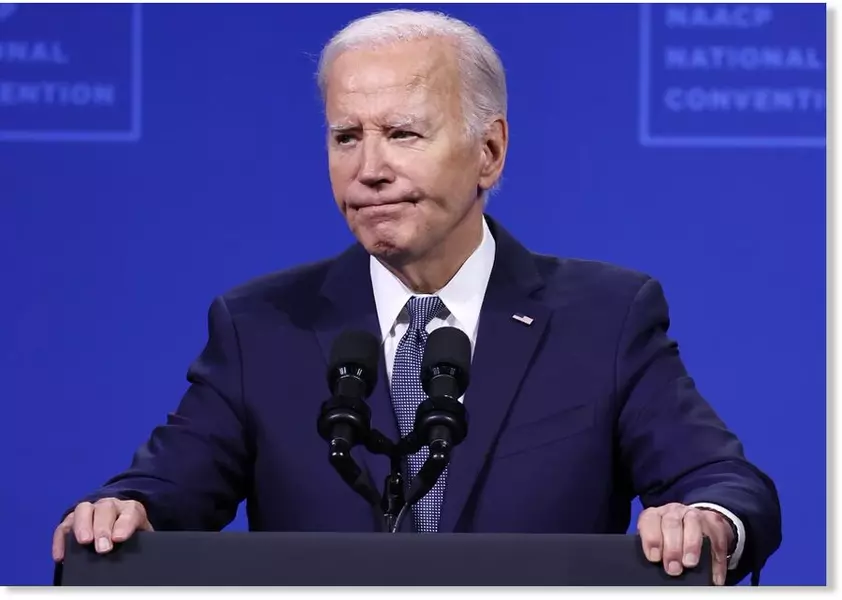On July 15, President Joe Biden embarked on a campaign trip to Nevada, a crucial swing state. However, his journey took an unexpected turn when he fell ill during a speech at the Las Vegas Airport. The president appeared pale and was rushed off stage by Secret Service agents, leading to widespread speculation about his health.
The next day, Biden addressed 5,000 members of the NAACP at its annual convention. However, on July 17, he unexpectedly cut short his trip and returned to Delaware aboard Air Force One, citing a COVID-19 infection. The White House announced that the president was experiencing upper respiratory symptoms, a runny nose, a cough, and fatigue.
According to multiple sources, including blog posts, local police reports, internet messages, and an article in the Daily Mail, there were further details about Biden’s trip to Las Vegas and his abrupt return home to Delaware. The president allegedly suffered from dementia and had a mini-stroke during his speech at the Las Vegas Airport.
These incidents raised concerns among key Congressional leaders, government officials, and some senior Biden funders who were withholding huge amounts of committed contributions. They pressured Biden to withdraw from the presidential campaign. The president was initially unreachable, but by July 20, former President Barack Obama became deeply involved in discussions about invoking the 25th Amendment to remove Biden from office due to his ill health.
The official narrative is that Biden had contracted COVID-19 and would be in isolation. However, sources suggest that there was pressure on donors to come across on their pending commitments, as it became increasingly clear that something more serious than COVID-19 was affecting the president.
On July 22, Obama placed a call to Biden, informing him that he had Kamala Harris’s approval to invoke the 25th Amendment and remove him from office. The official stated that there was an agreement among key figures in the Democratic Party that Kamala Harris would be their candidate for the presidency.
However, Obama did not immediately endorse Harris as the party’s nominee. Instead, he sought to maintain control over who would ultimately become the Democratic candidate for the November election. The official mentioned that the group had decided that Harris’s work as a prosecutor would help her deal with Trump in a debate.
Another potential drawback of selecting Kamala Harris as the presidential nominee was her lack of interest in reading the President’s Daily Brief, which contains highly classified intelligence information. However, she is now being kept up to date on all significant intelligence matters.
The decision to force Biden out of office by invoking the 25th Amendment was influenced by a series of increasingly negative polls on the president’s standing against Trump. These polls showed a downward trend in Biden’s popularity, leading some donors to withhold their support. The official mentioned that if Kamala Harris did not continue to show traction in these polls, other options would be considered, including an open convention.
Throughout the negotiations, Obama emerged as the strongman, seeking to maintain control over the party’s nomination process and the ultimate choice of candidate for the November election. On August 2, Obama and his wife publicly endorsed Harris for president, pledging their support for her campaign.

